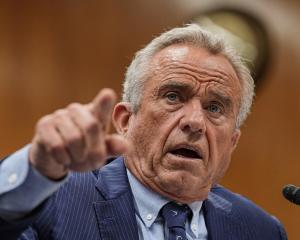
While another expert says the festival may have accelerated the take-off of the Omicron variant in New Zealand.
Soundsplash, held at Mystery Creek near Hamilton from January 21-23, is a location of interest and health officials have to date identified 68 close contacts among those who attended the music festival, but the number is expected to increase.
Five people, who are now in Auckland, tested positive after attending the event. One has tested positive for Omicron, while whole-genome sequencing is under way for the remaining cases.
University of Canterbury Associate Professor Arindam Basu said people gathered at the festival would have been yelling and vocalising - activities that would release a lot of virus into the environment.
"Festivals, particularly music festivals and others, are places where we kind of term them as super-spreading or hyper-spreading events," Basu told Newstalk ZB today.
"This, in all likelihood, is one such thing."
University of Otago professor Michael Baker defined a "super-spreader" event as a situation where a case infects an unusually large number of others at a single event.
Baker said there was potential for the Waikato music festival to be a "super-spreader" event but it came down to how many infected people attended the festival and how many other people they infected.
"Omicron, given than it is very infectious, it might be you only need one infectious person there who can infect scores of other people, depending on what they were doing.
"This event may have greatly accelerated the take-off of Omicron in New Zealand if those people went off around the country."
Basu too shared concern about people who may have potentially been infected at the festival dispersing home around New Zealand and infecting other people.
"There are bound to be seeds. That's a greater cause of worry."
University of Auckland's Associate Professor Dr Siouxsie Wiles told New Zealanders via social media to "brace themselves".
"Looks like (we) might have had a very big super-spreader event. Word of warning - nasal swabs may miss about 1/10 positives with Omicron so if you have symptoms and test negative you may still be infected," Wiles posted on social media.
Soundsplash was held under the orange traffic light setting and all Covid-19 protocols were strictly followed, according to a joint statement from the Soundsplash organisers and Mystery Creek Event Centre.
That included scanning attendees' Vaccine Passes.
The organisers said there were a "small handful of instances" where individuals tried to sneak in to the event, but they were "minimal".
Security guards quickly stopped those people and the police officers attending the event were notified, they said.
The Ministry of Health has asked anyone who attended the festival, from January 21 at 6am to 9.15am on January 23, to self-monitor for symptoms for 10 days following exposure at the event, which is until Wednesday, February 2.












